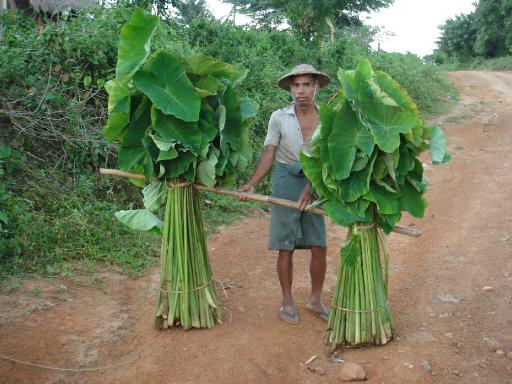
Recently Rated:
Stats
Work interests: Crop Wild Relatives (CWR), plant domestication, crop history, biodiversity, ethnobotany
Affiliation/website: National Museum of Ethnology, Osaka, Japan
Preferred contact method: Any
Preferred contact language(s): English, German
Contact: Dr Peter J. Matthews, Project Leader: pjm [at] minpaku [dot] ac [dot] jp
Favourite publications:
What makes taro edible?
Certain things in the world are considered "food" because we know them as foods. How well we know them is often what determines if they can be harmful or not.
One goal of the modern food industry is to produce cheap uniform foods that are uniformly safe and easy to swallow. As a result (intended or not) consumers know less-and-less about food and become more-and-more dependent on "safe" foods.... which turn out to be harmful when we become massively addicted to simple variations of salt, sugar and fat.
Almost all parts of all varieties of wild and cultivated taro are to some degree poisonous, most obviously because of acridity. But none of these plants are poisonous if we know how to treat them and make them edible. To cook any particular variety of taro well requires accumulated knowledge and experience with that particular variety.
Knowledge and experience are not the same thing. Some cooks learn and use methods faithfully because they are known to work, not because the need for a certain method has been explained. I have met cooks who have experience of preparing taro as a food but don't know that it can be poisonous.
Taro is not a product of the modern food industry.... it remains a food that is largely prepared using very old traditions of culinary knowledge. If and how people in different societies view taro as dangerous or difficult, and why, is largely unknown. Talking to people and asking questions about a danger that most people avoid and have not experienced is not easy.
How do we know what we know about food?
This is an open question for future fieldwork with taro globally.
For a related discussion, see:
https://www.theguardian.com/science/2022/sep/18/are-there-any-foods-that-have-not-at-some-time-been-considered-harmful-in-a-study#comments
(I joined the Guardian Science "Notes & Queries" discussion as "pjm21kyoto"):
